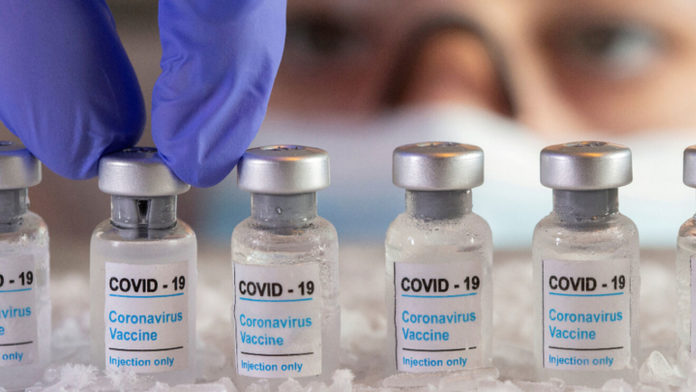I am HIV+. Is it safe to take the Covid-19 vaccine? Can I get the vaccine if I have cancer or going through chemotherapy? Will it counteract my immunosuppressant?
The above are just a few questions people with chronic conditions are likely asking themselves right now. Others are also worried about the side effects of vaccination being more severe if you have a chronic condition and what to do in that case.
All these concerns are genuine and important as a chronic condition makes your immune system weaker than the average person’s. Let’s find out what you need to know about Covid-19 vaccination in relation to chronic conditions, what to expect, and what you can do.
What are Chronic Conditions?
Chronic conditions are underlying, ongoing or long-term medical or health conditions that often need ongoing medical attention or other medical health. Common examples are
- Cancer
- Chronic kidney disease
- Chronic lung diseases (such as asthma)
- Diabetes Type-1 and Type-2
- Dementia
- Down syndrome
- Heart conditions
- HIV/AIDS
- Immunocompromised state
- Liver disease
- Overweight and obesity
- Stroke
- Sickle cell anemia
People who’ve had a slid or blood stem transplant recently and those with a cerebrovascular disease which affects blood flow to the brain are also classed under the chronic condition category, as are pregnant women.
How Does Covid-19 Vaccine Affect People with Chronic Conditions?
According to Dr. Ramin Ahmadi, Chief Medical Officer for Graduate Medical Education Global LLC., Covid-19 vaccine side effects have more to do with an individual’s immune system and the immune system’s reaction to the vaccine than the state of the patient’s chronic condition.
“All chronic diseases aren’t equal,” he says. “Some may affect the development of vaccine-mediated immunity while others stand to benefit a great deal from the vaccine.”
Many other health experts agree. Although data on the efficacy of the main Covid-19 vaccines on people with chronic conditions is scarce, the experts believe that the benefits of getting the vaccine far outweigh the risks.
Even in people with compromised immune systems, such as those undergoing chemotherapy or who’ve just had a bone marrow transplant, the vaccine is still believed to provide protection. Available data show that these people are more likely to be hospitalized from Covid-19 than Covid-19 vaccines.
Side Effects of the Vaccine
People who get the Covid-19 vaccine tend to have a few side effects, most of which are mild and only last a few days. Common side effects include;
- Headache
- Muscle and joint pains
- Fatigue
- Chills
- Fever
Allergic reactions are also possible. However, these are rare. For instance, some people may experience anaphylaxis, a severe and potentially life-threatening allergic reaction, which occurs within seconds or minutes of exposure to an allergen. But, again, the cases are rare. Only about 11 cases are reported per million vaccinations. Better still, anaphylaxis can be detected and easily treated during the 15-minute monitoring period post-vaccination.
Could the Vaccine or Side Effects Cause Flare-Up?
For people with chronic conditions, this is often the big question. Can getting the vaccine exacerbate symptoms of the underlying medical condition?
Unfortunately, the answer is – yes. Getting the Covid-19 vaccine can suddenly worsen symptoms of the underlying medical condition.
“There’s a risk of a flare-up after the Covid-19 vaccination in some individuals with chronic conditions,” says Ahmadi.
However, he’s quick to note that the risk is theoretical. So far, there haven’t been any reports of adverse side effects (beyond the standard side effects) in people with chronic conditions.
Other Frequently Asked Questions
- How would I know if I am allergic to something in the vaccine?
Unfortunately, there’s no way to know for sure unless you’ve had an allergic reaction to vaccine ingredients in the past. It’s for this reason everyone who gets the vaccine is kept at the site for at least 15 minutes for observation.
- I have had a bad reaction to flu shots in the past. Could the Covid-19 vaccine expose me to a similar risk?
Not necessarily. The Covid-19 vaccine has different ingredients than flu shots. However, you may want to discuss the matter with your doctor before getting the vaccine.
- What if I take immunosuppressant meds? Wouldn’t getting Covid-19 vaccination reverse the gains?
No, it wouldn’t. On the contrary, it may improve your immunity. According to the American College for Rheumatology, people with autoimmune conditions are at a greater risk of Covid-19 infections. Vaccination can help protect you. Nevertheless, make sure to speak about it with your doctor.
- I have cancer and currently in chemo. Should I still get the vaccine?
Yes. According to the American Cancer Society, weak immunity puts you at increased risk of Covid-19 infection. Therefore, gaining protection from vaccination is better than doing nothing.
Summary
It’s evident that even for people with chronic conditions who are theoretically at an increased risk of adverse side effects from the vaccine, the benefits of getting vaccinated are far greater than the risks.

